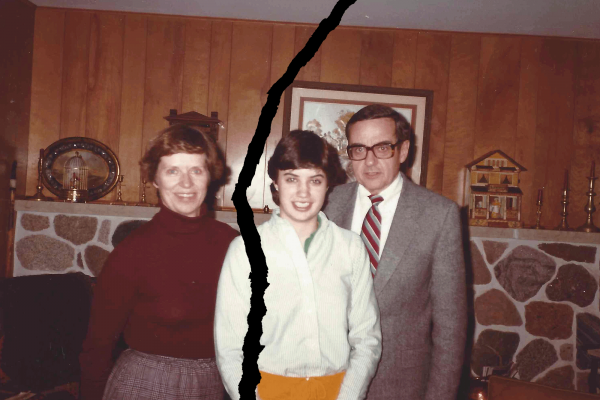It’s that glorious time of year when innumerable nativity scenes arise in living rooms and front yards, depicting Mary and Joseph kneeling over their newborn child. In these placid portrayals, there’s no suggestion of the revolution the child will launch. Nor is there a hint of his mother’s fiery spirit. Her bowed head suggests a passive bearer of divine progeny. But by the time she gets to Bethlehem, Mary has already had the audacity to question God.
We read in the Gospel of Luke that the angel Gabriel was sent to the tiny town of Nazareth, to find a virgin engaged to a man named Joseph. Finding the young woman, Gabriel says, “Greetings, favored one! The Lord is with you.” Not surprisingly, Mary is confused by his words and wonders what sort of greeting this might be. Gabriel attempts to reassure her, saying, “Do not be afraid, Mary, for you have found favor with God.” Then, I imagine, he takes a deep breath and offers a spiel of information that would have stunned a less resilient recipient of his news.
“And now, you will conceive in your womb and bear a son, and you will name him Jesus,” he begins. “He will be great, and will be called the Son of the Most High, and the Lord God will give to him the throne of his ancestor David. He will reign over the house of Jacob forever, and of his kingdom there will be no end.”
The obvious question for us, as rational creatures of the 21st Century, is: “How’s all that going to happen when she’s a virgin?” Two millennia ago, Mary asks the same question! In response to Gabriel’s grand proclamation, Mary is succinct and practical. She says simply, “How can this be, since I am a virgin?”
I imagine poor Gabriel rather taken aback. How often is a messenger of God questioned by a young woman in a tiny village in the backwaters of Galilee? It never occurred to him that he’d have to convince her. But she calls him to do just that.
Gabriel speaks of the power of the Holy Spirit. He adds that Mary’s relative Elizabeth, who is past the age of childbearing, is pregnant. Only then, after receiving proof that such reproductive miracles occur, does Mary accept Gabriel’s word and say, “Here am I, the servant of the Lord; let it be with me according to your word.”
Those simple words “Here am I” echo from across the ages, not just forward to us but back to the Torah. It’s the same response that Moses gives when called by God from the burning bush.
The old liberator is an apt role model for the young mother-to-be. Like her, Moses questions God. He questions whether anyone will believe that he’s sent from God. He questions whether he’s the right man for the job. “Pardon your servant, Lord,” he says. “I have never been eloquent . . . I am slow of speech and tongue.” Two great Biblical examples, Mary and Moses, beloved figures who question the divine, who dare to doubt.
Mary’s example is an especially powerful one in these troubled times when people insist that their truth is the only truth, when differing views are experienced as existential threats rather than opportunities for discussion and growth.
She’s not distrustful or unwelcoming of Gabriel, but she is thoughtful, and she does question the truths he proclaims so boldly. Even in the presence of God’s own messenger, Mary checks the facts. She questions, she listens, she learns. We would be wise to follow her example.
Got something to say about what you're reading? We value your feedback!







